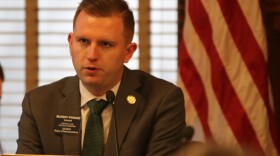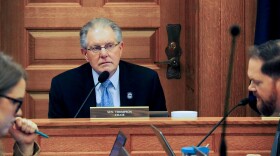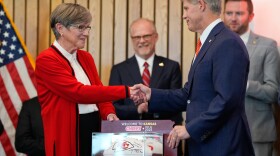Kansas is gaining international attention for a bill that would compensate wrongfully convicted Kansans.
The weekly British newspaper The Economist recently published a story about the bill, which would give wrongfully convicted Kansans $80,000 for each year spent in prison.
The article highlights the case of Floyd Bledsoe, who was convicted in April 2000 for the rape and murder of a 14-year-old girl after his older brother, Tom Bledsoe, pinned the crime on him, even though the elder Bledsoe confessed to the crime. Floyd Bledsoe was exonerated in December 2015 but under current state law, was entitled to no compensation for the years he spent behind bars. It is cases like his that have Kansas legislators considering the law.
Colorado passed a law in 2013 compensating exonerees $70,000 each year they are locked up. Texas, which accounted for a third of all exonerations in 2016, compensates individuals $80,000 for every year spent in prison.
According to the National Registry of Exonerations, courts overturned 165 wrongful convictions in 2016 – about three a week – and has recorded a total of 1,991 since 1989.
31 states and the District of Columbia provide compensation in such cases but in those states that don’t, those exonerated must seek payment through civil litigation, or by convincing lawmakers to pass separate bills on their behalf, which is time-consuming and often unsuccessful.
And some lawmakers think that carelessly written statutes could reward guilty individuals, which has slowed the passage of legislation.
Kansas’s bill has faced its own opposition for that reason. At a Feb. 14 hearing, a Republican state senator asked if someone could take advantage of the compensation by engineering their own wrongful conviction, serve time in prison and then prove their innocence, swindling the state out of a big payout.
“With all due respect,” Floyd Bledsoe told the committee, “no one in their right mind would do that.”
According to a fiscal note on the Kansas Legislature’s website, an estimate of the cost of the proposed bill is not reflected in Governor Sam Brownback’s 2018 Budget Report.







